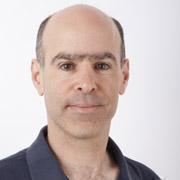Prof. Abner Soffer conducts experimental research in several areas of particle physics. He uses data collected by the ATLAS particle detector at the CERN laboratory in Switzerland to search for long-lived particles, such as heavy neutrinos or supersymmetric particles predicted by “new-physics” models. He also uses data collected by the recently constructed Belle-II detector in Japan to precisely measure properties of particles called bottom mesons, which are sensitive to effects of new physics. Until recently he also he used data from the older BABAR detector in California. For the past few years, Soffer has collaborated with Prof. Volansky at TAU and others on development of crystal-based detection of low-mass dark-matter detectors. Soffer also conducts phenomenology research, proposing new measurement methods that take advantage of existing or proposed capabilities of particle accelerators and detectors.
Research achievements include: First search for a decaying, long-lived particle at the LHC collider; tightest constraints on the mass of the proposed gluino particle; first model-independent search for a long-lived particle at a “B-factory” electron-positron collider; first search for a long-lived heavy neutrino; new method to measure matter-antimatter asymmetries in semileptonic B-meson decays; new methods for using precise vertexing at an electron-positron collider; selected to serve as Physics Coordinator of the BABAR Collaboration (360 physicists from 13 countries) in 2011-2012; selected to serve as Co-Leader of the Heavy Flavor Averaging Group (42 physicists from 14 countries) since 2018.



